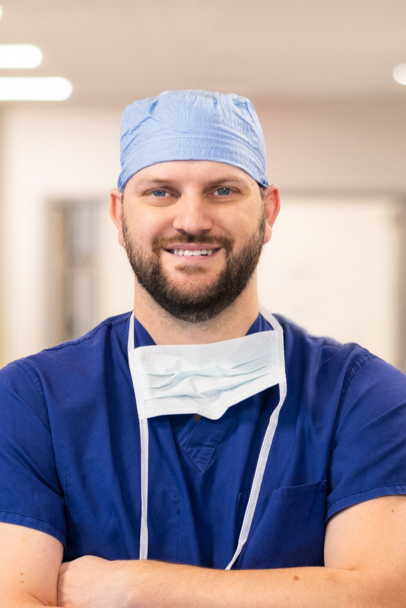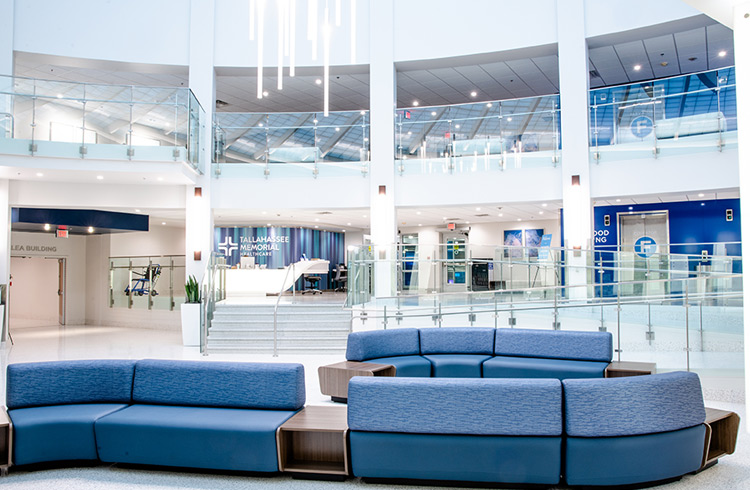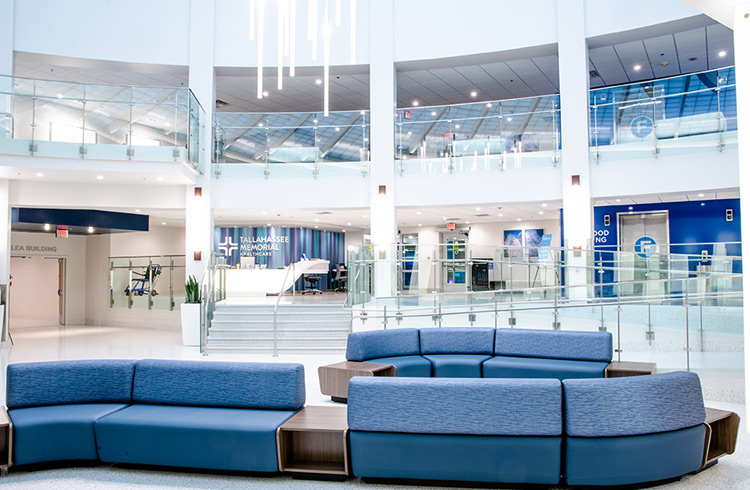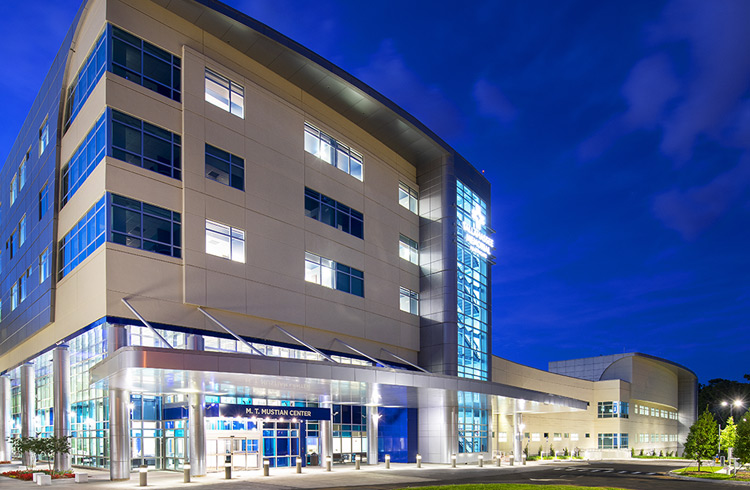Error message
Advanced Hernia Repair Program at TMH
North Florida’s Only Nationally Accredited Center of Excellence in Hernia Surgery
At Tallahassee Memorial HealthCare (TMH), we are proud to be North Florida’s only nationally accredited Center of Excellence in Hernia Surgery and Robotic Surgery by the Surgical Review Corporation. This distinction means you can trust that every hernia repair surgery is performed by fellowship-trained surgeons in a facility that meets the highest national standards for quality, safety, and outcomes.
Every year, our expert surgeons perform nearly 1,000 hernia repair surgeries every year, using advanced, minimally invasive and robotic-assisted techniques to help patients recover faster with less pain.
Don’t wait to get relief. If you think you have a hernia, we’re here to help you feel better, sooner.
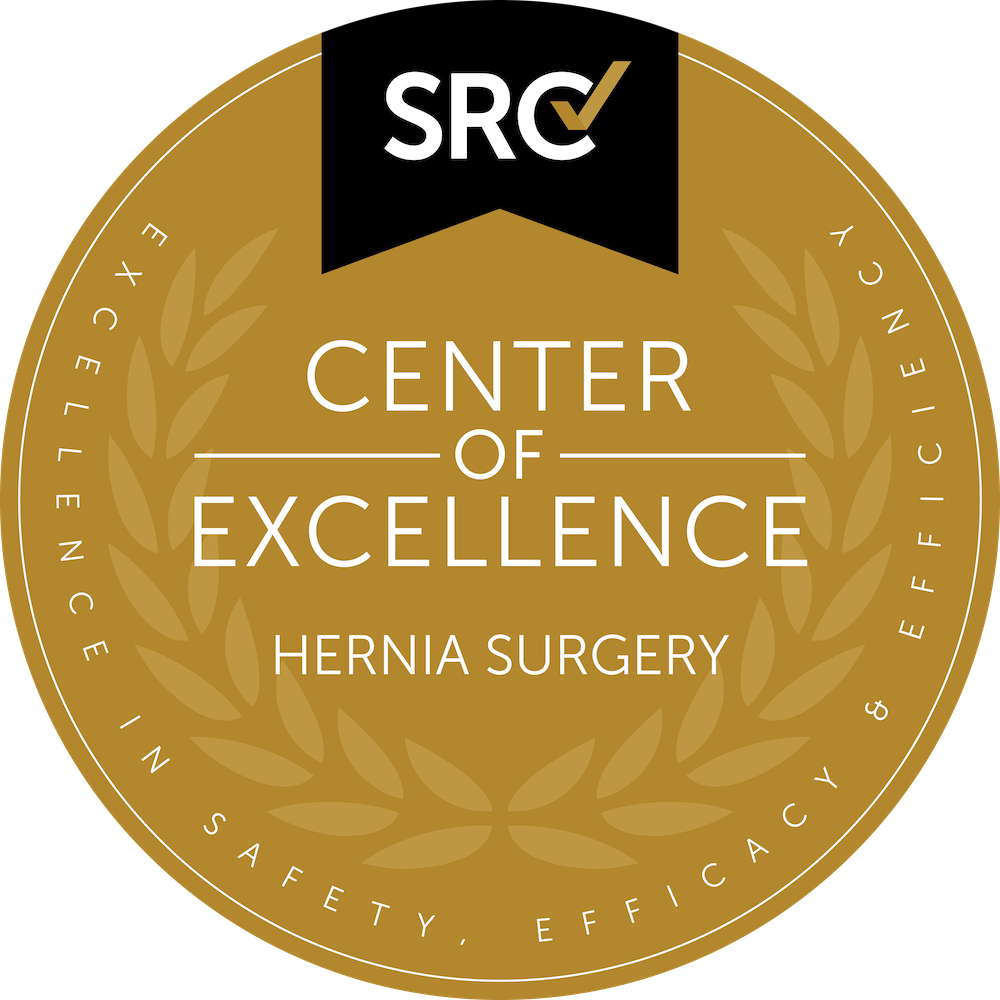 Why Choose TMH for Hernia Repair
Why Choose TMH for Hernia Repair
TMH’s Center of Excellence status means we exceed national benchmarks for:
✔️ Quality care through advanced surgical techniques and specialized expertise
✔️ Patient safety with strict protocols and proven best practices
✔️ Comprehensive staff training to maintain peak proficiency
✔️ Ongoing follow-up to ensure the best recovery and long-term results
✔️ Experience and efficiency from a high surgical volume
When it comes to hernia diagnosis and repair, experience matters — and no one in North Florida offers more advanced care than TMH.
Understanding Hernias 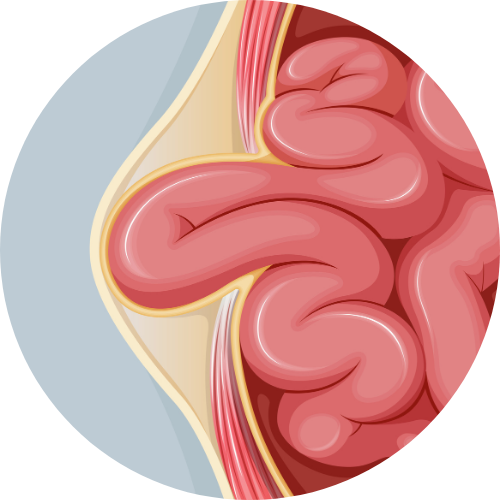
A hernia occurs when an organ or tissue pushes through a weak spot in the muscle or tissue wall. Hernias can develop from injury, prior surgery, or even be present from birth.
Common symptoms of a hernia include:
- A visible lump or bulge
- Pain or discomfort when lifting, coughing, or straining
- Pressure, dull aches, or pinching sensations
- Chronic acid reflux or heartburn
- Abdominal or chest pain
- Shortness of breath
- Sudden groin or scrotum pain
- Fever, nausea, or vomiting (emergency signs)
Your hernia may be in:
- Your lower chest through your diaphragm
- Your groin through your lower abdominal wall
- The front midline of your abdomen
- Through a former abdominal surgery incision
Types of Hernias We Treat
Our expert surgeons specialize in treating all types of hernias, from common cases like inguinal and hiatal hernias to more complex, rare conditions like Spigelian and lumbar hernias.
A hiatal hernia occurs when part of your stomach pushes up through a small opening in your diaphragm, called a hiatus, and into your chest.
The diaphragm is the muscle that separates your stomach and chest and helps you breathe. Typically, your stomach sits below the diaphragm. Still, with a hiatal hernia, part of it slips through a small opening where the esophagus – the tube that delivers food and fluids to your stomach – passes through the stomach. The stomach then pushes up through the hiatus into the chest and loses its ability to keep acid from refluxing into the esophagus and throat.
This hernia is internal, so it may not be visible as a ‘bulge’ like other common hernias. In one study, 95% of individuals with gastroesophageal reflux disease (GERD) also had a hiatal hernia, showing a significant relationship between the two.
If you experience chronic acid reflux, heartburn, trouble swallowing or regurgitation, you may have a hiatal hernia that can be repaired through surgery.
An inguinal hernia occurs in your groin region, between the lower part of your abdomen and thigh.
These hernias are the most common, accounting for 75% of all hernias, and usually affect men more than women. They happen when part of your bowel protrudes into your inguinal canal, a passageway that runs down your inner thigh.
Inguinal hernias typically present as a bulge in the groin area. They cause pain, a feeling of pressure or heaviness and sometimes swelling or pain around the testicles in men.
An umbilical hernia occurs when part of your intestine pokes through an opening in your abdominal wall near your belly button.
These hernias are most common in babies, usually seen when they cry. During gestation, the umbilical cord passes through a small opening in the baby’s abdominal muscles. This opening usually closes after birth, but an umbilical hernia may appear at birth or later in life if the muscles don't join completely.
While most common in infants, this type of hernia is also present in adults, typically in women. Too much abdominal pressure, such as obesity, multiple pregnancies, fluid in the abdominal cavity, previous abdominal surgery and long-term peritoneal dialysis to treat kidney failure contribute to umbilical hernias.
If you experience severe or worsening pain, discoloration of the hernia, nausea and vomiting, constipation or blood in your stools, seek medical attention immediately.
A ventral hernia is any hernia that occurs through the front wall of your abdomen. This umbrella term includes umbilical, incisional and epigastric hernias.
It may only appear during certain activities or positions that contract your abdominal muscles, like laughing, coughing, bending, exercising, sneezing, etc. You may feel a dull ache or sharper pain when it pops out with movement. If your hernia is more complex, you may experience nausea, vomiting, redness or a rash at the site.
Advanced, Minimally Invasive Hernia Repair
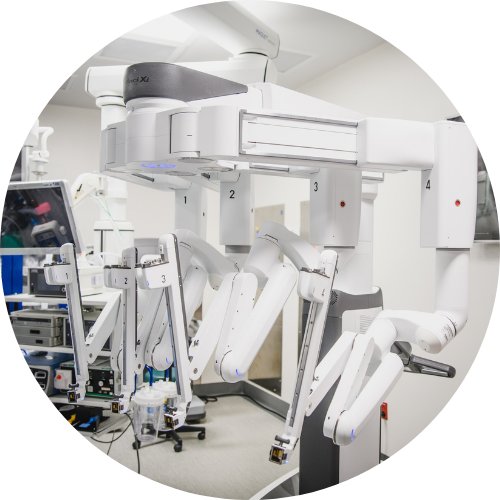 Most hernia repairs at TMH are performed using robotic-assisted surgery, which offers:
Most hernia repairs at TMH are performed using robotic-assisted surgery, which offers:
- Smaller incisions
- Less pain after surgery
- Faster recovery
- Enhanced surgical precision
Hernia Frequently Asked Questions
Untreated hernias often worsen and can cause dangerous complications, including cutting off blood supply to tissues.
You may see or feel a hernia emerge in a precise location when you are in certain positions that exert yourself, like squatting or lifting. In an infant, a hernia might appear when they are crying or pooping and become irritable.
Most are caused by tissue weakness combined with strain — from lifting, coughing, obesity, pregnancy, or previous surgery.
If your hernia is painful, changes color, or causes fever, nausea, or vomiting, seek immediate medical attention.
Hernias grow bigger and worsen over time. At the same time, a small hernia may not bother you; if the opening weakens and stretches, more tissue can push through, causing issues later. This will likely lead to pain and other complications.
